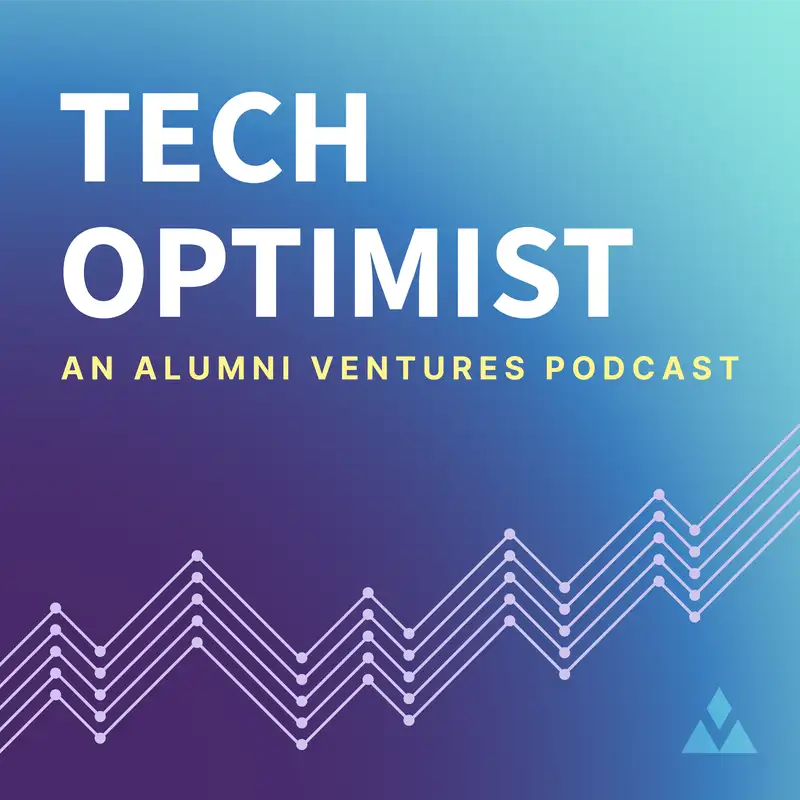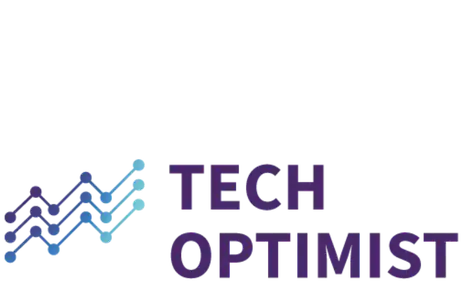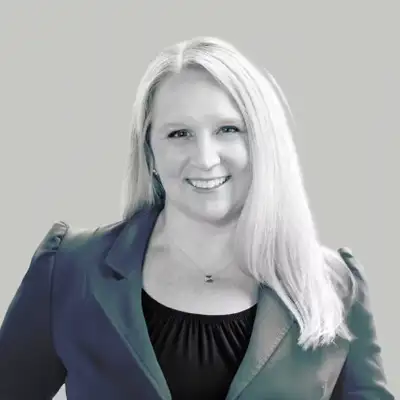#32 - Meet the Start-up That’s Making User Onboarding Easy
Sam:
Let's be honest, signing into your favorite apps is annoying and broken. Today, we talked to a company who may have fixed it. My name is Sam, your guide, and welcome back to the show. We are so happy you joined us.
Rob Thelen:
We at Rownd want to make it so you can change how and where onboarding actions happen like authentication.
Pete Mathias:
It does feel like it requires a miniature miracle at times, especially if you're under time pressure.
Rob Thelen:
And build something that people need, that they need. And the definition of something that people need is they're willing to pay for it. So we charge more than our competitors and I'm happy to say that.
Sam:
In a world captivated by criticism, it's easy to overlook the groundbreaking technologies shaping our future. Let's shine a light on innovators who are propelling us forward. As the most active venture capital firm in the US, we have an exceptional view of tech's real-world impact. Join us as we explore, celebrate, and contribute to the stories of those creating tomorrow. Welcome to the Tech Optimist.
As a reminder, the Tech Optimist podcast is for the informational purposes only. It's not personalized advice and it's not an offer to buy or sell securities. For additional important details, please see the text description accompanying this episode.
Pete Mathias:
Welcome to another episode of Tech Optimist. Today, thrilled to have Rob Thelen, the entrepreneur and the visionary behind Rownd. Rownd is a game changer in the world of user authentication or user auth as the cool kids say. Rob, thank you for joining us. Let's say I pop up in the elevator or I jump in with you, and we've got a few minutes, maybe a few seconds before we hit the next floor. Tell us about Rownd. What are you building? Give us the elevator pitch.
Rob Thelen:
All right. Here's the elevator pitch, Pete. User onboarding is broken. And we know this because we experience it all the time. User onboarding's about the same it's been for 20 years. You open up, you download an app, the first thing they ask you for is to log in. And that's kind of stupid because that's not how people think and work. 50% of people drop off at the login screen. We know this. Everyone knows this. The stats show it. Anyone with Google Analytics sees it, and yet fixing that is hard. It takes a lot of iteration, a lot of efforts. So we at Rownd want to make it so you can change how and where onboarding actions happen, like authentication. We move it around, play with it, iterate on it, experiments, and perfect it. That's really what we're working on here is making the world just a little bit easier for people to get into apps. Because if you can increase that side of the funnel just a little bit, a few percent points here and there, it leads to huge outcomes further along in the funnel.
Pete Mathias:
I do wonder how much economic loss, how much personal loss we have simply getting from app to app, as you say, getting on board and into an app. It does feel like it requires a miniature miracle at times, especially if you're under time pressure. So that no doubt is a frontier for iteration. But tell us about yourself, Rob. You obviously come from quite a remarkable story of service into technology and entrepreneurship, but give us the, who's Rob?
Rob Thelen:
Yeah. So as you mentioned, I spent eight years in the Air Force. I did everything in the Air Force, from leading 280 people on the flight line to keep F-15s up in the air to leading a 12-person team in Afghanistan as part of a combat advisor team in Eastern Afghanistan to help equip and train Afghans to lead military operations, to spending $1.2 billion, your hard-earned tax dollars on buying cool stuff.
After those years in the Air Force, I used my GI Bill to go to the Tuck School of Business at Dartmouth where I met you, and then I joined IBM for five years where I led products for a product called API Connect. That's also where I met the entire co-founding team of Rownd, Matt and Rachel. We decided that we wanted to try something else, so we jumped ship from IBM, raised a little bit of money, and started up a privacy company. And from there we built pretty cool products that allowed people to own their privacy, but found out something very important when we got in the Y Combinator, and that was that no one cares about privacy.
They say they do. I do. I love privacy. But the fact that there are 4 billion people on the internet, and most of them are on Facebook or TikTok tells you that individuals don't, and companies look at it as a cost center, a risk mitigation thing, not an actual product. So we took all that vision that we had inside the area and start up a authentication company. We still value privacy, of course, it's critical. I have a book behind me. The Age of Surveillance Capitalism. It's always looking over my shoulder to make sure we don't do anything evil but we started that up. We found a problem that people had, that people were willing to pay for and we just started to move quickly in that direction.
Sam:
Before hopping into the rest of this interview, I did my typical company dive here. One thing I wanted to share that you should definitely check out is Rownd is super current and active on their sort of blog page. Robert, Matt, and Rachel, all three co-founders, write a lot of really interesting blogs. I read a few. An example for one that I think is really good and really insightful is called The Everyone Is a User Manifesto posted in May of this year. So definitely recommend taking a read if you're interested. But they as well, have a sort of general dogma video on their company that kind of explains their reasoning for what they do their technology and I wanted to share it. It's about five minutes, so I'm going to play that now, and then after that we're going to hop right into a short break and then right back into the interview. Don't go anywhere.
Video:
Today, I'll be covering the problem with modern sign-in and how Rownd is revolutionizing and changing mobile onboarding forever. Mobile and web app sign-in and signup has remained unchanged for the past 30-plus years. It goes like this. Users come to a landing page, might have to download an app, then they see the sign-in page with a username and password that they mostly forget. Then finally, they get in to see the app. And it remains the same today. Landing page, login page app over and over again. It's frustrating. And it's frustrating to those that know the app users best. The product and design teams. They have no say in how and where signup happens. They're restricted by the past and what has already been built. Even small changes to our costly, timely, and may never happen.
No one likes this, especially your users. Most all potential users fall off at the sign-in page. Users hate passwords. They hate remembering app credentials. And they hate being forced to sign up too soon. That's where Rownd comes in. Rownd fundamentally changes how authentication and sign-in works for mobile. We are revolutionizing the way users sign up and onboard to apps for the better. With our novel technology, we make mobile app signup dynamic and adaptive to empower product and marketing teams with self-service, no-code tools to change how and where users sign in, in real-time, instantly everywhere boosting user conversion rates exponentially.
Rownd allows no-code iteration from our powerful platform, taking away the constant development burden to iterate and update signup flows. After install, product managers and designers can iterate, test, hypothesize, move, and play with every element of onboarding dynamically, no code necessary all from the Rownd platform. For example, in the round platform, as a designer myself, I can make quick design updates to my sign-in UI with no code. No bugging anyone else for a simple change. I can enable the logo to show up on sign-in, change colors, appearance, mode, and more.
And then, on the right, in my live gaming app, the update is immediate everywhere to all of my users. How cool is that? It goes so much deeper than that too. I can do the same thing for sign-in methods. If I want to add security and biometrics with passkey sign-in, it's as simple as flipping a toggle. If I want to try to boost onboarding rates with Apple sign-in, it's on instantly everywhere with the flip of a switch, same with Google One Tap. I can turn it on for all of my users just like that. The status quo would take months. With Rownd, it's a button click.
Let's see it in action. Back in the round platform. Let's say I've seen some dropoff from my iOS users in my gaming app here. Within a click I can turn on Apple sign in and make it the first thing my iOS users see.
Android users will still keep seeing Google. I can preview it here, but within one refresh, it's live on my app, on the right, thanks to server side updating. No one else is doing this. No one else is making iteration this easy. And it gets even more exciting with automations. Rownd Automations allow me to really enhance my onboarding flow. With automations, I can attach automated prompts to elements and pages or trigger UI to appear saving devs time and helping teams impact their app's experience without code.
Here's an example. Let's say I want to add a sign and prompt to a button on my application. I want users to be prompted to sign and view the leaderboard on my app. So within Rownd Automations, I simply add a new sign-in prompt to my mobile app. If needed, I can quickly capture new pages and tag them to add my customized prompt, and then I can even test it from the platform to make sure it's working how it should.
Then as soon as I publish it, users everywhere will start seeing this new feature. It's as easy as that. Rownd's sign-in flow is the most customizable and iterable in the world world. It's revolutionary. Through automations and adaptive sign-in we are changing the way users interact with mobile apps for the better.
Additionally, this year we'll be releasing analytics not only to provide user and sign-in insights but to offer tailored suggestions based on user data for enhancing sign-in to better grow user conversion rates. The results speak for themselves. The Tribeca Film Festival, 10x'd their user signup rate by changing onboarding with Rownd. Stardust, a women's health imperial tracking app grew by 250,000 users in six months after implementing Rownd to iterate and change their sign-in strategy. Our customers see higher user onboarding rates and save tons in development and marketing costs. We've got a novel concept in a massive market, and we're growing steadily. The Rownd Platform provides, for the first time ever, a signup process that can be moved, iterated upon, and perfected by the teams closest to end users. This results in higher conversion rates, higher revenue, and better user experiences while staying secure and passwordless. Get started today at rownd.com.
Pete Mathias:
Hey, everyone. Just taking a quick break so we can tell you about the US Strategic Tech Fund from Alumni Ventures. AV is one of the only BC firms focused on making venture capital accessible to individual investors like you. In fact, AV is one of the most active and best-performing VCs in the US, and we co-invest alongside renowned lead investors. With AV's US Strategic Tech Fund, you'd have access to an investment portfolio focused on technologies that are critical to bolstering US national security and economic prosperity. We prioritize three key areas, homeland security, cyber AI and digital strategy, and space innovation.
By investing in companies innovating in these areas, you can support early-stage ventures and help encourage sustained growth and technological progress in the United States. If you're interested in learning more, visit av.vc/funds/strategictech.
Keeping an F-18 up in the air, keeping a tech company on track, one could talk for hours about the differences between those, but maybe we could talk for a minute on the commonalities. Everyone talks about how veterans make some of the greatest founders out there. What attributes spike in the life of a veteran and the life of an entrepreneur?
Rob Thelen:
There's a few. And I really do enjoy talking about this because I do think veterans are underrepresented in the tech startup worlds. And the things that we're awesome at, there's a few that I'll toot my own horn at. One is just handling stress. I've been shot at, so it doesn't matter what the worst day around is. It's still better than the best day in Afghanistan. And the ability for veterans to handle that type of stress and make critical decisions with limited data is something that we're just really good at. So we were given a large vision as part of a mission like, "train and equip the Afghans. Bye. See you in a year." And then our job is to do that. And at a tech company, it's the same. It's like, "Build a billion-dollar business. Bye. See you in seven years." And our job is to build that.
And just the ability to take limited resources, limited data, make decisions, move, reevaluate, and the constant iteration is something that we're just awesome at. So I really do enjoy that. And that's true on F-15 all the way to Afghanistan to day one at a startup.
The other thing that we are good at is leading. A tech startup is a team. A building and maintaining a high-quality, high-performing team is what veterans do. And actually, it's far easier in the startup world because we get to choose our team. In the military, it's given to you. It doesn't matter if you like the people or don't like them. You got to make them work, and you have to accomplish the mission no matter what. There is no, "I wish I could trade this person out," or, "I want to fire this person." That's not your choice. They're your team. We have to choose our team. I have to build the best team in the world for accomplishing the problem that we have, and I can delete it. So those are things that we're just really good at, and I would not turn my... I enjoyed my veteran experience. I enjoyed my service in my country. And I enjoy being a founder of a high-growth tech startup. It's a lot of fun.
Pete Mathias:
Rob, you have chosen the team in line with your volition and your desire. Where are you all in the journey? Where is Rownd?
Rob Thelen:
We are at a million-dollar run rate for revenue this year, so we are growing. We are a 7% team to accomplish that. We're breakeven. We've built an incredible product. And what's cool about the product we built is it's not a product we built like the seven of us in a room, serially conspiring to come up with this next great product and stealth. We built every pixel of it with a customer. A customer helped us with the pain points, with the problems, with the features we built. We talk about it constantly. We have a superpower called Rachel Orrino, who is our co-founder-designer who designs all this stuff, and we show it to a customer. For even put a line of code down and it's just this amazing ability for us to quickly iterate and build something that people need, that they need.
And the definition of something that people need is they're willing to pay for it. So we charge more than our competitors, and I'm happy to say that. So we are not a value play here. We are all about building something that's entirely new to the internet, to the world apps. And our vision is grand. It's ambitious and it's very optimistic.
Pete Mathias:
Beneath a higher willingness to pay are tailwinds. Tailwinds for companies, tailwinds for markets, economies, tailwinds in the world. What are the big trends that are driving tailwinds not only at a market level but maybe at a round level?
Rob Thelen:
Yeah. So there's a few big ones. So, one is we're not in a recession, but there's definitely some pullback in the tech world. A little bit here and there. If you're an AI startup, you're doing great. Everyone else is kind of just trying to survive. So there's less money for marketing and that means you have to optimize your funnel. So that helps us out a lot. In the world of AI, the fact that within a year or two, you and I will be able to build an app is pretty phenomenal. There is no doubt that with the ways that world is going, I'll be able to talk to a chatbot and say, "I want to build Angry Birds but with badgers and snakes instead." And I'll be able to generate this thing. I'll be able to publish it.
And that helps us so much because so much of our product is built around allowing the product manager and non-tech people to iterate how more authentication happens, so the AI can install Rownd and you can still have complete control over what happens where, and you don't need to have a deep tech understanding on how to do that. So, a world of thousands of more apps coming out.
But what that also means is that there'll be a lot of crap out there. And sorry for the language. But the amount of garbage that's going to be introduced into the world is just going to be tenfold. There's going to be a million yoga apps. And it's going to be a red ocean. People are going to be stabbing each other for market share. It's going to be bloody out there. And the thing that's going to differentiate the best from the mediocre is going to be onboarding. It's be how fast you can get into the app? How fast can you do your first downward dog? How fast is that? Is that possible?
And it is just the current methods that are out there just all revolve around username, password at the very edge of the app. Even if they have cool stuff, have you sign up for it, but we again want to push that later in the app to allow people to do the things they want to do. So the companies that love us the most right now are the ones that are in these red oceans that are fighting for their lives, and they're the ones who need 10% more onboarding. And if you can increase that by 10%, you're going to win it. And we are about backing winners. So yeah, those two big trends are huge.
The other one. We are a defense startup as well. We do use defense startup. We help the Air Force and the Space Force out with their app needs. And the market force, it's not the most optimistic thing, but we are at war. There is a cyber war going on right now. If you don't believe that we are not at a cyber war, you're being naive.
Every day, state actors are hacking US systems and trying to gain advantages. A water tower flooded a town a few months ago in Texas. That was Russia. And if they can turn on a valve in a water tower, they can turn off a valve into nuclear power plants. They're trying to gain access to apps. They're trying to gain access to infrastructure. They're trying to get access to information systems. And because of that, the need for great authentication security is just going to increase. Because it's no longer just a little hacker trying to get a few Bitcoin, we're talking about state actors trying to destabilize Western democracy, and we need to be ready for it, and we need to be building products that help defend against it. And that's what we do at Rownd as well.
Pete Mathias:
We have compounded the challenge. Not only individual actors have become entire state-sponsored threats. That certainly is a major tech challenge. And surely, as you referred to. The AI product boom that we will see will result in, as you said, not only a lot of garbage but a lot of gems, and clearly Rownd helping with that onboarding for those assets will be critical and consequential. When you look at Alumni Ventures, a firm that has broad tentacles across the United States in innovation that has investors, LPs that represent many corners of American business and development, what is a ask that you have for a community like ours?
Sam:
Before we round off this interview, we're going to do one more short break.
Video:
Do you have a venture capital portfolio of cutting edge startups? Without one, you could be missing out on enormous value creation and a more diversified personal portfolio. Alumni Ventures, ranked a Top 20 Venture Firm by CB Insights is the leading VC firm for individual investors. Believe in investing and innovation, visit av.vc/foundation to get started.
Rob Thelen:
My ask would be, as you go out into the world and you experience great authentication and great onboarding, you can get into the app quickly, you have this great experience, or you experience horrible authentication, reach out and contact me. We enjoy seeing both. And I'll tell you. Our biggest go-to-market motion right now is finding the horrible apps and just saying, "Hey, I got three pieces of advice for you. Don't pay me. I'm just going to give this to you because you need it. And when you find out it's going to be impossible for you to do it on your own because it's hard stuff to do, then we can talk about business stuff. But these are things you got to do if you want to survive. So as you go out there and you see horrible apps just in the wild, reach out and contact me, and I'm sure we can put in the show notes, my email address."
But yeah, that's the biggest thing. It is just I'll look around. But also become aware of it. The status quo doesn't have to be the reality of what we have. People have just accepted it. And I find that to be really kind of disheartening a little bit. People are just like, "This is the way the world works." And it's like for every other aspect of our lives we are optimistic except when it comes for onboarding authentication. They're like, "Well, this is how it is. You got to sign in before we can get into the app. Or I got to enter username and password, or I got to answer these 32 questions before I can get in there."
Why? Why do we not accept the fact that... Why do we accept that reality but we don't accept any other reality in our lives? So we're like, "Hey, tech can fix this. We can fix this together except for this." So go around. Look at it. Email me the worst. If you are working on a product that is not going well, let's chat. Because I promise you, we can increase the number of people in your app.
Pete Mathias:
Rob Thelen of Rownd, a game-changer in the world of user authentication. Rob, thank you for joining the Tech Optimist today.
Rob Thelen:
No problem. I really enjoyed it.
Sam:
Thanks again for tuning into the Tech Optimist. If you enjoyed this episode, we'd really appreciate it if you'd give us a rating on whichever podcast app you're using, and remember to subscribe to keep up with each episode. The Tech Optimist welcomes any questions, comments, or segment suggestions. So please email us at info@techoptimist.vc with any of those, and be sure to visit our website at av.vc. As always, keep building.








